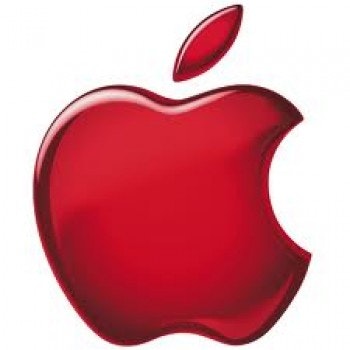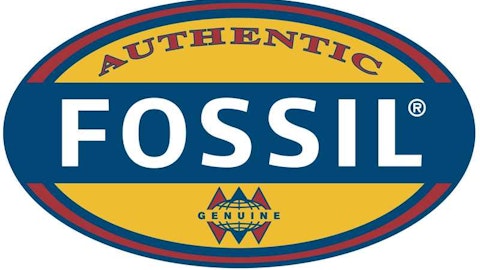Recently, one question has dominated Wall Street headlines: what should Apple Inc. (NASDAQ:AAPL) do with its $137 billion cash pile? Hedge fund manager David Einhorn, who recently sued the Cupertino, California-based company, certainly believes that Apple should loosen its purse strings to reward its investors. Einhorn’s argument is simple: Apple Inc. (NASDAQ:AAPL), which has lost 23% of its market value over the past six months, needs to either maximize its growth potential through acquisitions and research, or pay back shareholders with a bigger dividend or stock buybacks.

Hoarding Hurts Growth
It’s unusual for companies to hoard cash the way Apple Inc. (NASDAQ:AAPL) does. Companies generally keep enough cash on hand for annual operations, and use a combination of cash, stock, and debt to finance acquisitions. While all that cash is a nice fund for a rainy day, inflation and missed acquisition opportunities will hurt the company in the long run. Most importantly, it doesn’t make a stock a better value for growth, although it strengthens two core metrics of financial stability – price-to-book and debt-to-equity ratios. Apple is ridiculously strong in both departments. What investors want is proof of growth, and acquiring Nokia will allay those concerns.
Why Nokia?
Nokia is worth approximately $15 billion, and factoring in a generous acquisition premium of 33%, it would only cost $20 billion in cash to take over the former heavyweight of the handset world. Nokia’s stock is also on sale, trading at a mere 1.44 times book value. Nokia is shouldering $7.18 billion in debt, but that’s still pocket change for Apple Inc. (NASDAQ:AAPL).
Here are the primary reasons an acquisition would be a bargain that would contribute strongly to Apple’s future growth.
Reason 1: Patents Galore
Just as Google Inc. (NASDAQ:GOOG) acquired Motorola to expand its defensive moat with its patent portfolio, Apple needs Nokia’s extensive patent portfolio, which consists of lucrative LTE and 4G technologies, to maintain an edge over Samsung Electronics Co., Ltd. (KRX:005930) and its fellow Android competitors. That patent portfolio alone is worth an estimated $6 billion to $10 billion.
Acquiring Nokia would also cancel out Apple’s previous settlement with the company in 2011, which required it to pay between $5 to $7 per iPhone in patent royalties.
Nokia’s patent portfolio also contains patents for delivering TV channels wirelessly over the Internet, which could be a valuable piece of the puzzle for its long rumored smart television project.
Lastly, Apple could take apart Nokia’s patent portfolio, keeping the patents it needs while selling the rest to other telecom businesses for a hefty profit.
Reason 2: A Wider Variety of Handsets
It’s increasingly apparent that Apple needs to mix things up with the iPhone. Analysts forecast that Apple needs a lower-end handset to maximize its revenue growth.
Nokia’s Lumia and Asha series have performed exceptionally well in lower-end markets. This would allow Apple to capitalize on Nokia’s growth in emerging markets without fear of cheapening its own brand. In the future, Nokia-Apple dual branded handsets could yield some unique mid-range options featuring either iOS or Windows Phone 8.
Reason 3: Chairs will fly in Redmond
Microsoft CEO Steve Ballmer is likely to throw a few chairs if Apple acquires Nokia. The move would cripple Microsoft’s mobile operations immediately, since Nokia still produces 76% of all Windows phones.
Apple could then either continue producing Nokia Windows Phones, ironically using its rival’s technology to generate revenue, or discontinue it and replace its entire handset line with iOS technology.
When Google acquired Motorola Solutions Inc. (NYSE:MSI), the former handset kingpin had almost no prospects for recovery. In contrast, Nokia isn’t down for the count yet. Although CEO Stephen Elop’s recovery efforts have been paying off, critics claim it may be too little, too late.
What Nokia needs most right now is cash, as evidenced by the cancellation of its dividend. An infusion of cash from Apple could be what it needs to increase the Lumia’s market share.
Reason 4: Apple Maps
Horrid memories of melting cities, dislocated cities, and railroad track driving routes still haunt the memories of Apple Maps users. That distorted mess was the company’s worst blunder in years, and forced it to allow Google Maps back onto iOS platforms.
Nokia surprisingly owns some of the best mapping software in the business, after it acquired Navteq Corporation in 2007. Google, Blackberry, Microsoft, Amazon Inc. (NASDAQ:AMZN), and Samsung all depend on Navteq technology to some degree. Acquiring Navteq would be a brilliant move that mirrors Google’s acquisition of travel search engine ITA back in 2011 – it would take control of its competitors by buying (and charging for) the back door.
Nokia also paid $8 billion for Navteq. Claiming that valuable piece of technology, along with the rest of Nokia for $15 billion to $20 billion, would be a steal.
The Foolish Bottom Line
For now, Nokia’s on sale. But under Elop’s ambitious guidance, it may not be a value stock for much longer. At most it would cost Apple $30 billion to acquire Nokia and cover its outstanding debt. That’s a mere 22% of its cash hoard to invest in a future beyond the confines of iOS devices. Acquiring Nokia would expand Apple’s defensive moat, destroy Microsoft’s mobile business, and give it valuable leverage over its Android-based competitors.
That, Mr. Cook, would be money well spent.
The article Four Reasons Why Apple Should Buy Nokia originally appeared on Fool.com and is written by Leo Sun.
Copyright © 1995 – 2013 The Motley Fool, LLC. All rights reserved. The Motley Fool has a disclosure policy.





